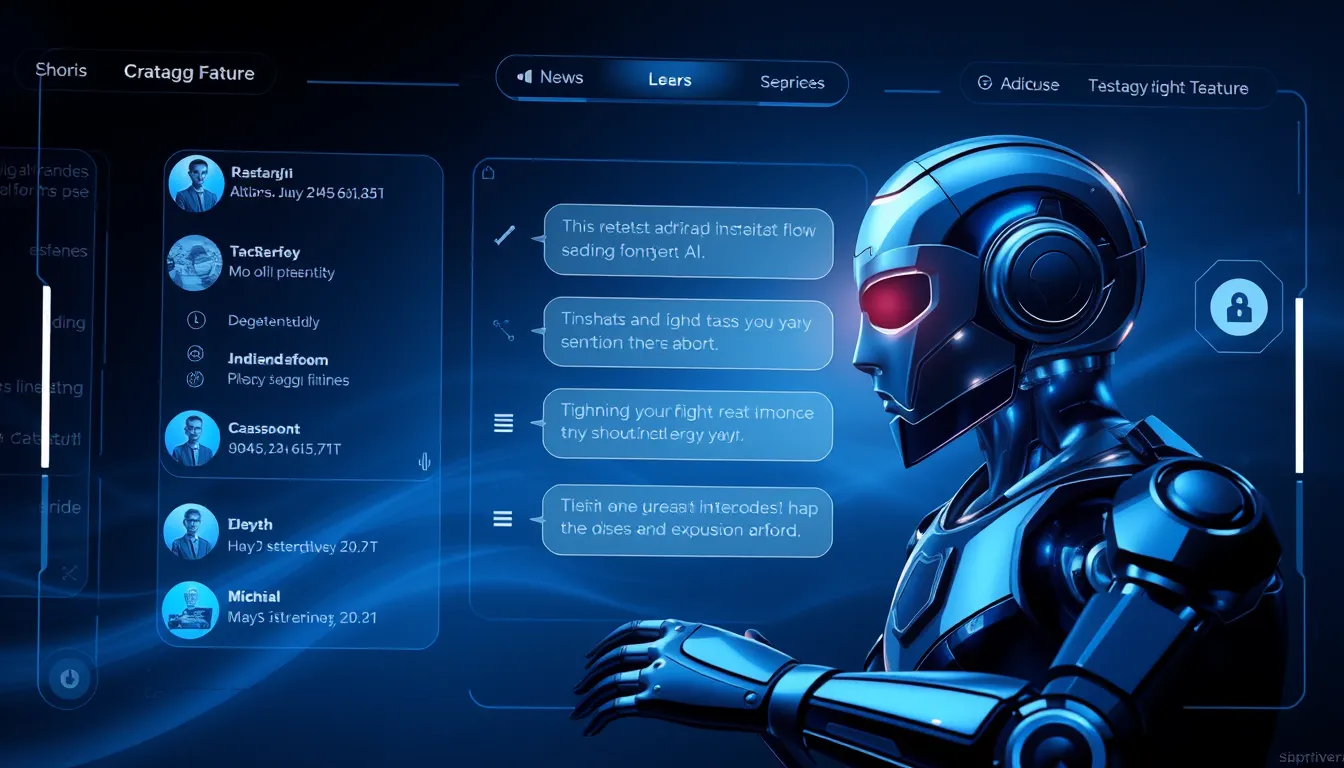Now Reading: Powerful AI in Healthcare Diagnostics: Boosting Patient Care
-
01
Powerful AI in Healthcare Diagnostics: Boosting Patient Care
Powerful AI in Healthcare Diagnostics: Boosting Patient Care

Powerful AI in Healthcare Diagnostics: Boosting Patient Care
The field of healthcare has been transformed by technological innovations, and none are as groundbreaking as AI in healthcare diagnostics. This comprehensive article explores the integration of artificial intelligence in medical diagnostics and how it is revolutionizing patient care. With a focus on AI in healthcare diagnostics, we delve into advancements in medical imaging, disease prediction, and the challenges that come with integrating AI responsibly.
Understanding AI in Healthcare Diagnostics
The use of advanced algorithms and machine learning models in healthcare has led to a paradigm shift in how medical conditions are diagnosed and treated. AI in healthcare diagnostics not only streamlines the detection process but also improves the accuracy of diagnostic tests. As medical institutions increasingly rely on data-driven decisions, technologies like deep learning and pattern recognition are becoming invaluable.
Enhancing Medical Imaging with AI
One of the major breakthroughs is seen in AI medical imaging. Innovative systems now assist radiologists in identifying subtle anomalies in X-rays, MRIs, and CT scans. Some key benefits include:
- Reduced diagnosis time
- Higher accuracy in identifying abnormalities
- Support for less experienced clinicians
For further reading on medical imaging innovations, consider exploring resources available on the official website of the National Institutes of Health (https://www.nih.gov).
How AI Improves Diagnostic Accuracy
AI plays a critical role in improving diagnostic accuracy by processing large volumes of data quickly and efficiently. The focus on AI in healthcare diagnostics ensures that even minute variations in patient data are detected and analyzed, reducing the chances of misdiagnosis. A few points to consider:
- Data Integration: Advanced tools combine data from various sources for a holistic view of patient health.
- Pattern Recognition: AI algorithms identify patterns that may suggest early-stage diseases.
- Continuous Learning: Modern AI systems update their models through machine learning, ensuring that diagnostic methods evolve alongside emerging health trends.
AI Disease Prediction and Its Impact
Beyond diagnostics, AI is paving the way for effective disease prediction. By analyzing historical data and current health trends, AI in healthcare diagnostics offers insights that help predict potential outbreaks and patient crises before they escalate. This forward-looking approach not only improves individual care plans but also aids public health officials in preparing for larger health events.
The ability of AI to predict disease progression depends largely on accurate and comprehensive data collection. Modern healthcare systems benefit from integrating patient records, demographic data, and genomic information, offering a clearer picture for prediction models.
Addressing Challenges and Ethical Considerations
While the promise of AI in healthcare diagnostics is vast, several challenges must be addressed. These include safeguarding patient privacy, ensuring ethical use of data, and maintaining transparency in AI decision-making processes. Key concerns are:
- Data Security: Protecting sensitive health information from cyber threats.
- Bias in AI Models: Constant oversight is necessary to prevent algorithmic biases that could adversely impact certain groups.
- Regulatory Compliance: Adhering to guidelines from agencies such as the FDA (https://www.fda.gov) and equivalent organizations.
The Future of AI in Healthcare Diagnostics
Looking ahead, the potential for AI in healthcare diagnostics is promising. Ongoing advancements in technology will likely lead to even more refined diagnostic tools, better treatment predictions, and ultimately, improved patient outcomes. As AI continues to evolve, collaboration among medical professionals, data scientists, and regulatory bodies will be essential to address ethical challenges and drive further innovation.
Conclusion
In conclusion, AI in healthcare diagnostics stands at the forefront of modern medicine, offering unprecedented opportunities to enhance diagnostic accuracy and patient care. The journey of integrating AI into healthcare is both exciting and challenging, setting the stage for a future where technology and medicine work harmoniously to save lives. As we continue to navigate this rapidly evolving field, the commitment to ethical practices and data security remains paramount.
For more insights on AI innovations in healthcare, explore trusted sources and stay updated with industry developments. Embracing these technologies responsibly will pave the way for a healthier, smarter future in patient care.

























